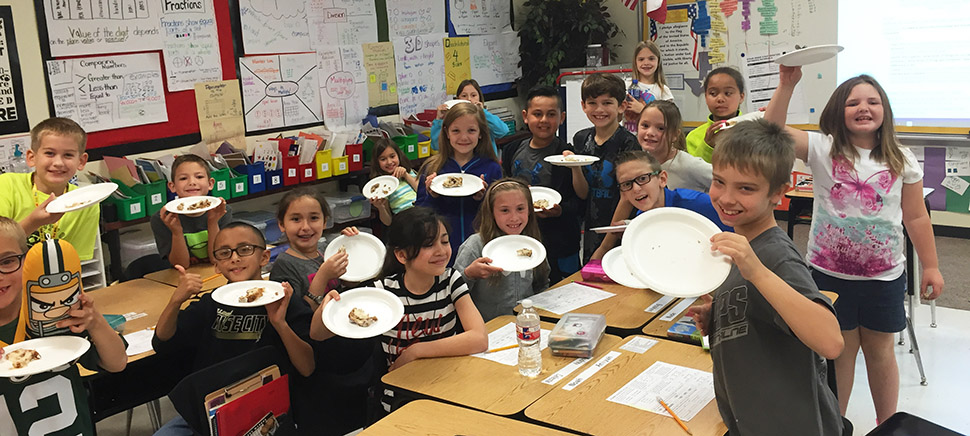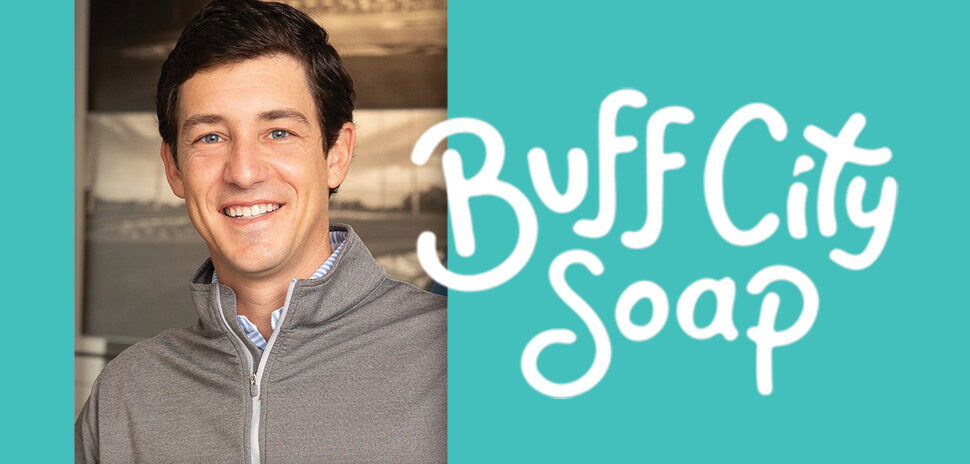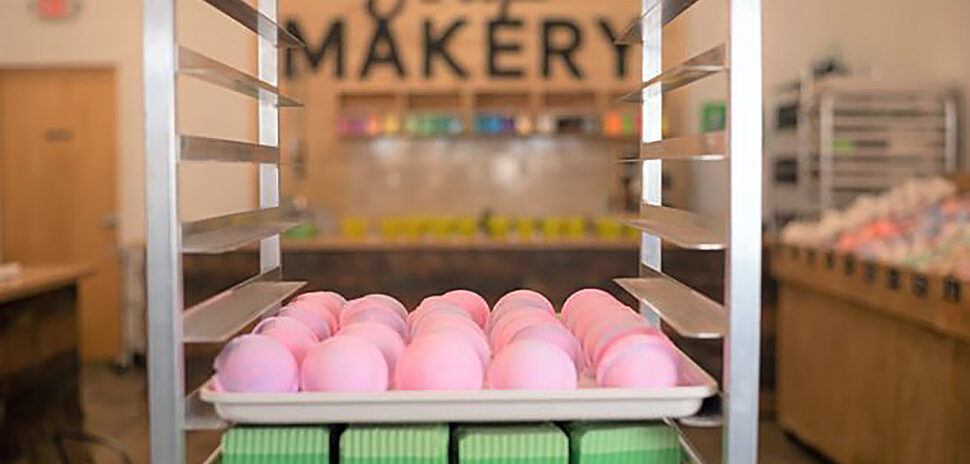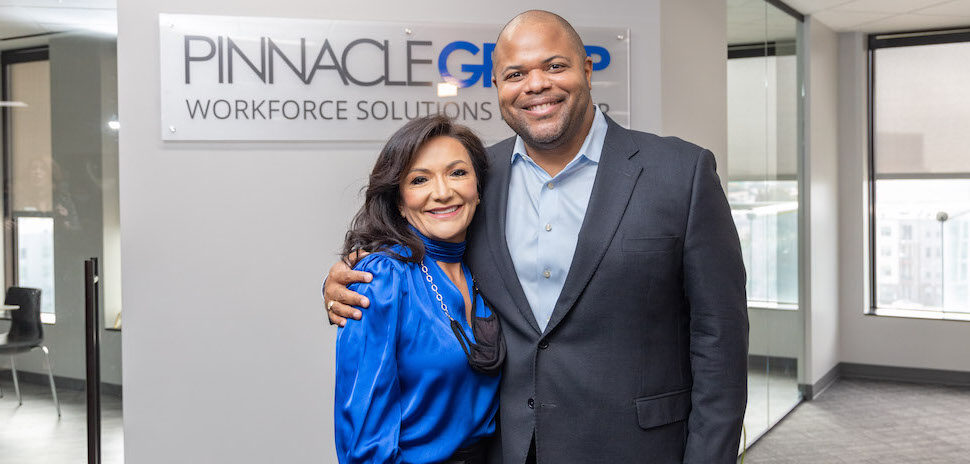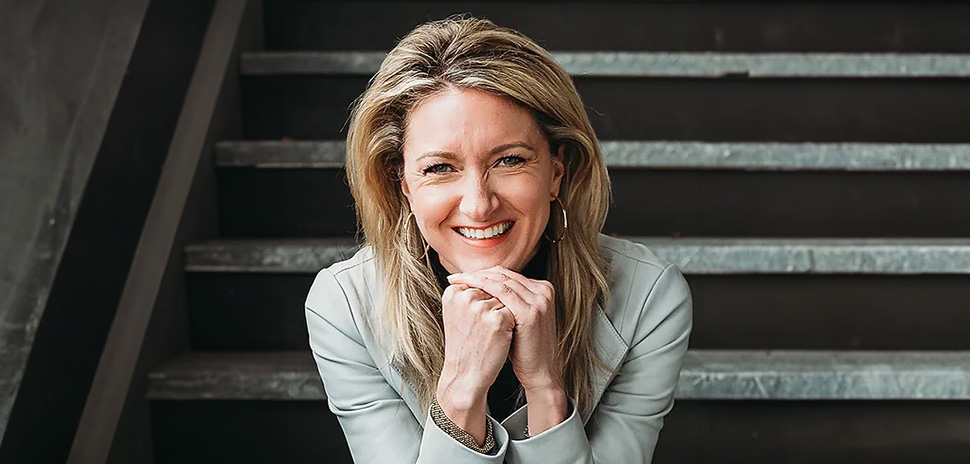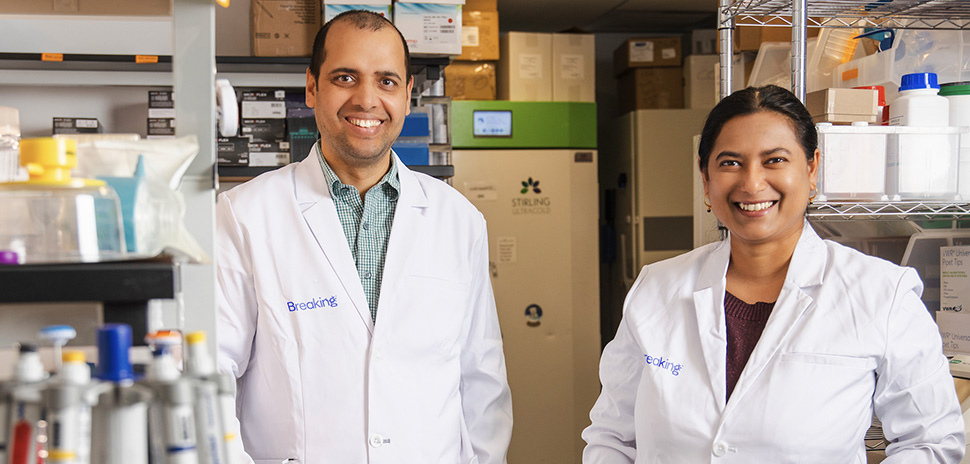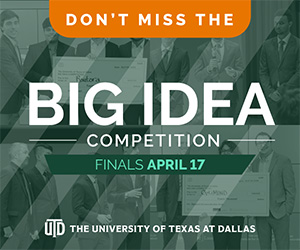STUDENTS LEARN REAL-WORLD USES FOR FRACTIONS
Imagine being 7 years old and learning about fractions for the first time. For some, the concept of fractions is easy to understand, for others, there is a need to apply this new concept to the real world, and what better way to than through food. We can all relate to food.
Who uses fractions in measurement and recipes? A baker for one.
Imagine the impression made when a real baker talks with a class about the real concepts of mathematics in baking bread. Rather than working with the measured ingredients in one loaf, extrapolate enough to bake for the thousands of loaves a company distributes commercially throughout the United States.
“Many of our students had never seen artisanal bread before, and were very intrigued by the process of making it, especially how it related to our equivalent fraction unit.”
– Cheri Froehling
Third-grade students from Miss May Vernon Elementary School in Royse City ISD, a rural school district east of Dallas, virtually connected with Meaders Ozarow, owner of Dallas’ own beloved Empire Baking Co., to talk about how math and fractions are used in the real world. For students in Cheri Froehling’s class, the connection was more than a simple diversion.
“Being able to connect with a professional baker in Dallas was an exciting experience for our kids, especially as she showed us the types of breads and pastries that they produce,” Froehling said. “Many of our students had never seen artisanal bread before, and were very intrigued by the process of making it, especially how it related to our equivalent fraction unit.”
VIRTUAL FRACTIONS LESSON GETS STUDENTS ENGAGED
Questions indicate engagement, and Froehling’s class had lots of them.
“There were a number of questions that showed they understood her connections to using not only fractions, but all operations: multiplying, dividing, adding, and subtraction. They asked great questions and using the web interface, Nepris.com, made it especially interesting to them,” Froehling said.
For Ozarow, connecting to a class of students virtually was especially meaningful.
“I was motivated to connect with the kids because I remembered my own children learning math at their age,” she said. “Whenever we were able to connect their schoolwork to practical situations, they were more excited about learning the concept.”
The connection encouraged the teacher to go above and beyond.
“I went to Empire Baking Co. last weekend and bought some of the bread to take back to class,” Froehling said. “My class was thrilled when they were able to actually try the apple walnut bread (fabulous!) and they continued to talk about ‘how cool it was that we can taste it for real.’ One student mentioned that it must have taken a ‘really small fraction’ of the flour to make just our loaf.”
MATH APPLICABLE IN THE REAL WORLD
Ozarow had real world advice to share with the students, too.
“We check and double-check our math work everyday at the bakery. If we don’t, the recipes don’t turn out right, which means that the cookies, muffins, and bread don’t taste good.” – Meaders Ozarow
“The advice that I have for the kids is check their work,'” Ozarow said. “We check and double-check our math work everyday at the bakery. If we don’t, the recipes don’t turn out right, which means that the cookies, muffins, and bread don’t taste good. And that’s bad for business. It’s too big a risk to do it once and hope it’s right. We have to check just like they do!”
In the end, not only did students learn to apply fractions in the real world, but they were introduced to various careers involved in the process of a running a bakery.
You never know, one of these kids might start the next revolution in the food industry when they grow up.
Stasi Gaveras, business development manager at Nepris, contributed to this article.
For a daily dose of what’s new and next in Dallas-Fort Worth innovation, subscribe to our Dallas Innovates e-newsletter.










